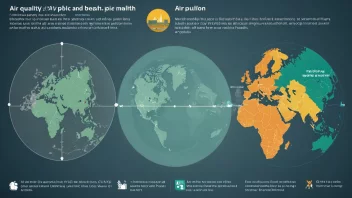Introduction
Climate change poses significant challenges to agriculture, affecting crop yields, water availability, and pest management. However, farmers and researchers are innovating to adapt to these changes. In this article, you will learn how agriculture is evolving to meet the challenges posed by climate change through various strategies and technologies.
Step 1: Understanding Climate Change Impacts
Before implementing any adaptation strategies, it is crucial to understand how climate change affects agriculture. Here are some key impacts:
- Temperature Changes: Increased temperatures can lead to heat stress in crops.
- Altered Precipitation Patterns: Changes in rainfall can affect water supply for irrigation.
- Pest and Disease Pressure: Warmer climates may lead to increased pest populations.
Step 2: Implementing Sustainable Farming Practices
Farmers are adopting sustainable practices to enhance resilience to climate change:
- Crop Rotation: Rotating crops can improve soil health and reduce pest build-up.
- Conservation Tillage: Minimizing soil disturbance helps retain moisture and reduce erosion.
- Agroforestry: Integrating trees with crops can provide shade and improve biodiversity.
Step 3: Utilizing Technology and Innovation
Technology plays a vital role in adapting to climate challenges:
- Precision Agriculture: Using data and technology to optimize field-level management.
- Drought-Resistant Crops: Developing varieties that can withstand extreme weather conditions.
- Smart Irrigation Systems: Implementing systems that conserve water and improve efficiency.
Step 4: Enhancing Soil Health
Healthy soil is critical for resilient agriculture:
- Organic Matter Addition: Adding compost or cover crops can improve soil structure.
- Soil Testing: Regular testing helps farmers understand nutrient needs and pH balance.
- Reducing Chemical Inputs: Minimizing synthetic fertilizers and pesticides can enhance soil biodiversity.
Step 5: Engaging in Community and Policy Initiatives
Collaboration is essential for effective adaptation:
- Participating in Local Networks: Joining local farming cooperatives can facilitate knowledge sharing.
- Advocating for Supportive Policies: Engaging with policymakers to promote sustainable agriculture initiatives.
- Education and Training: Attending workshops and training sessions to stay informed about best practices.
Summary
In summary, adapting agriculture to climate change requires a multifaceted approach that includes understanding impacts, implementing sustainable practices, utilizing technology, enhancing soil health, and engaging with communities. By following these steps, farmers can build resilience against climate challenges and contribute to a sustainable future for food production.
Final Advice: Stay informed about ongoing research and developments in agricultural practices to continuously improve your adaptation strategies.






